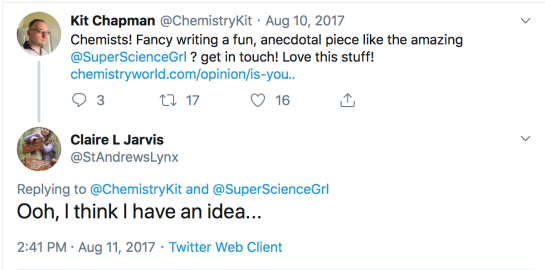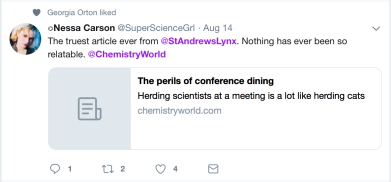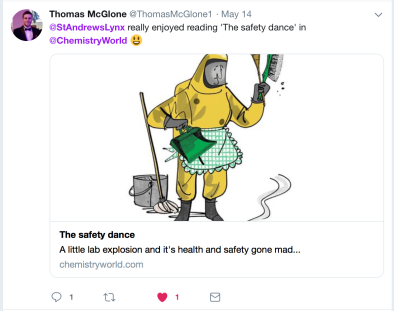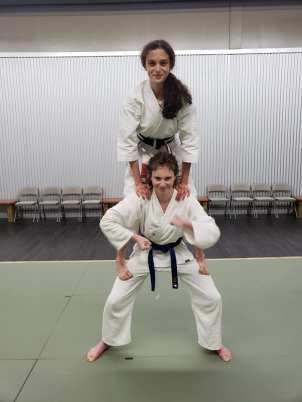Instagram has broken me. And I barely use the site.
“Oh, here’s a lil’ something I cobbled together the other day. [heart eyes emoji] [star emoji] [multicoloured hearts x3] [hashtag-artist] [etc],” People post captions like this next to photos of what are clearly intense art projects requiring lots of skill on the part of the creator.
One of the reasons I’m jealous is because I have a creative pursuit – writing – but it’s not very ‘Gram-able. I can take selfies of me sitting at my laptop, or screenshots of text…but I don’t think that’s comparable to showing off your latest finished portrait.
I think I’m also jealous because I do have an artsy streak…and I’ve repressed it. During my PhD I drew birthday & going away cards for other lab members. The tradition wasn’t started by me, but I kept it going after our original undergraduate artist left. My colouring pencils have sat untouched in the corner of my apartment for over a year now.
In a recent birthday/Xmas package from Scotland my mother enclosed a wad of old pencil & watercolour sketches I must have created when I was 15 or 16. I imagine she chuckled once she uncovered them, because my cartoons/doodles were ridiculous: made-up ads for imaginary (useless) products, lampoons of school social groups, fantasy compositions. But here’s the thing…when did I last draw a bunch of stupid, pointless shit for my own entertainment? Those paintings served no purpose, but I can tell they were a blast to make.
Why does it matter? Instagram incites me to jealousy on many counts: people showing off exotic holidays, vibrant social lives, exquisitely-crafted salads. I’m allowed to accept that I can’t have/do everything.
***
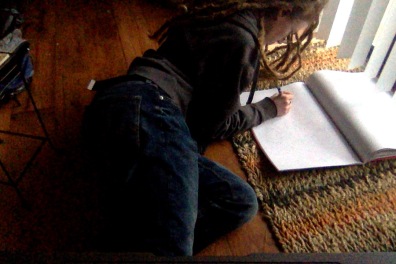
This is the current extent of my creative activities: join-the-dot puzzles. They can be almost meditative.
Well, there are some reasons I think I should move to action. The first is over the past year I’ve realised that in a professional sense, I fall into the category of a ‘Creative’ as opposed as ‘Technical’ or a ‘Scientist.’
I’m a healthcare copywriter, a job requiring a scientific background. However, it’s a job handled by the ‘Creative’ wings of recruitment agencies. I’m contacted by recruiters hunting down graphic designers, creative project managers and marketers. Those recruiters don’t network at scientific or healthcare-focused events; they’re involved with design and marketing professional societies. Their educational background is in the arts. Obviously my crunchy chemistry background and PhD make me an attractive candidate for healthcare copywriting roles…but I’ll still be assessed through the prism of ‘Creative.’
Since coming to this realisation I’ve created a portfolio website, and changed my resume to make it fit the norms of ‘Creative’ resumes (gratuitous colour, flashier layout). There’s still more I can do to convince others that I’m a bona-fide, successful Creative.
The other reason is I have to channel lots of creative energy in my line of work. I don’t just mean that the act of writing is an act of creativity. I have to think creatively about managing projects on deadline: if I can’t schedule an interview with my first choice source, who should I contact instead? How do I come up with new ideas? If I start a conversation with a source expecting that they’ll say X, Y and Z…and they tell me something that (i) contradicts my key assumptions about the piece I was planning to write, or (ii) is surprising in a totally cool way I was not prepared for…how can I change my line of questioning mid-conversation?
For me, creative pursuits are synergistic. If I start pumping imaginative energy into drawing, it makes me a more imaginative writer. Even when I’m mindlessly colouring in a sketch, I’m thinking about other stuff on a mental back burner. It’s rare I’ll come up with a good work-related idea while staring at my computer screen.
***
So…in 2020 I’ll try to be more artsy and creative. Draw and paint. Indulge in silly projects and develop new skills. It can’t hurt: will see how it helps.

 That’s a digression. My
That’s a digression. My 